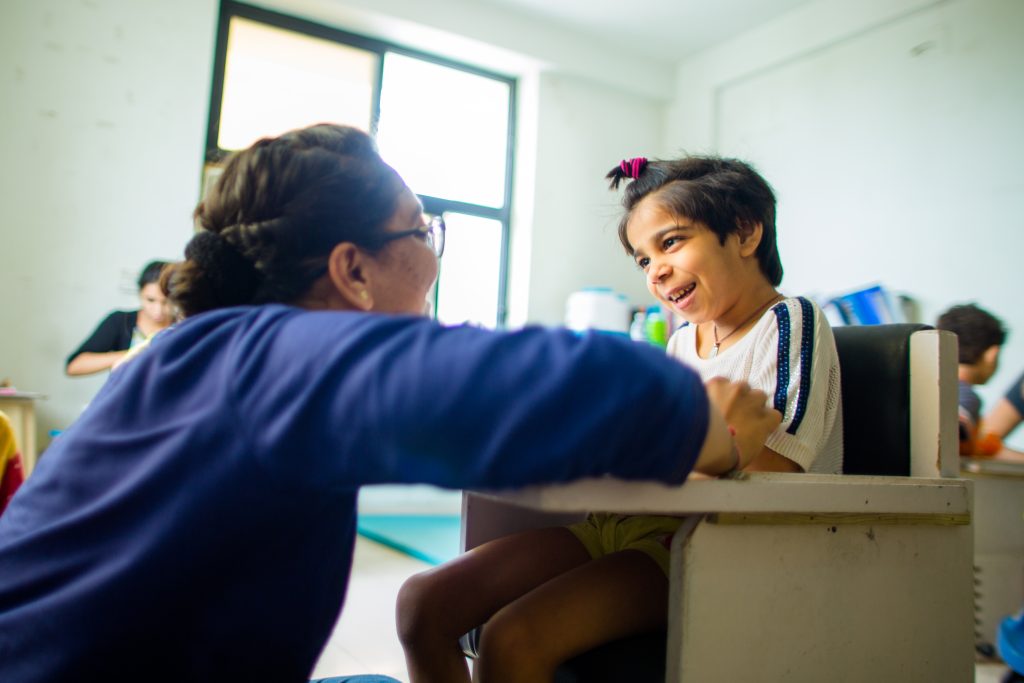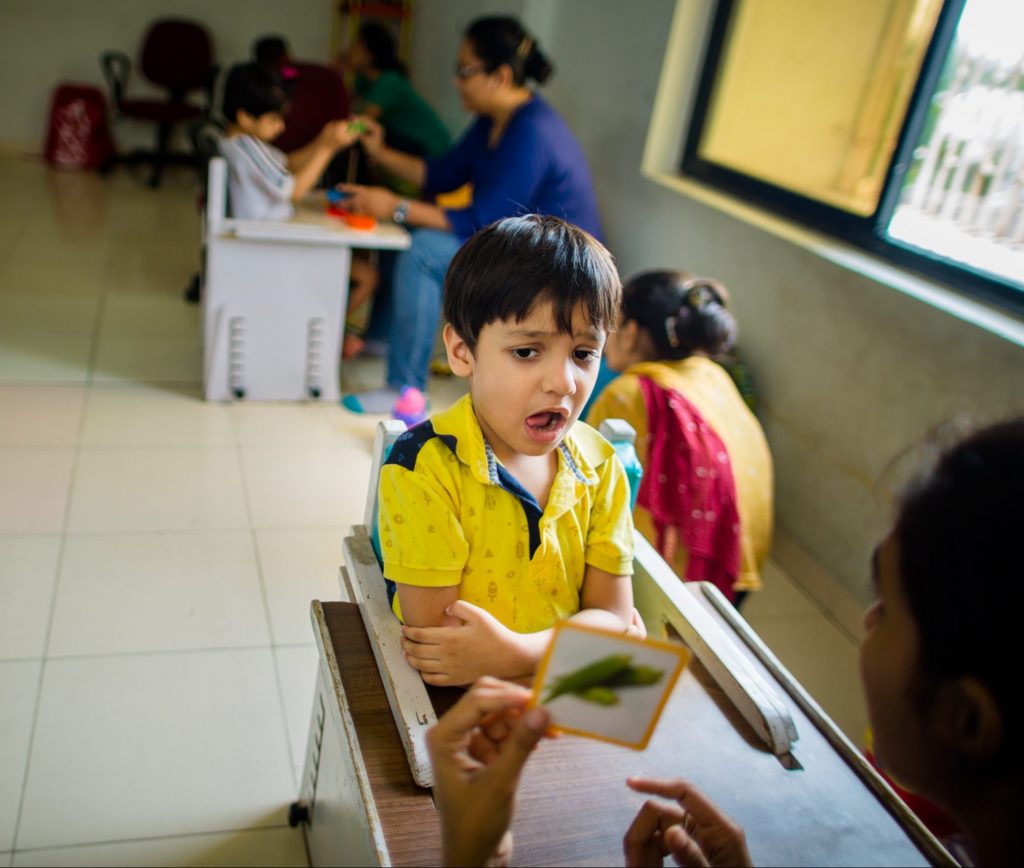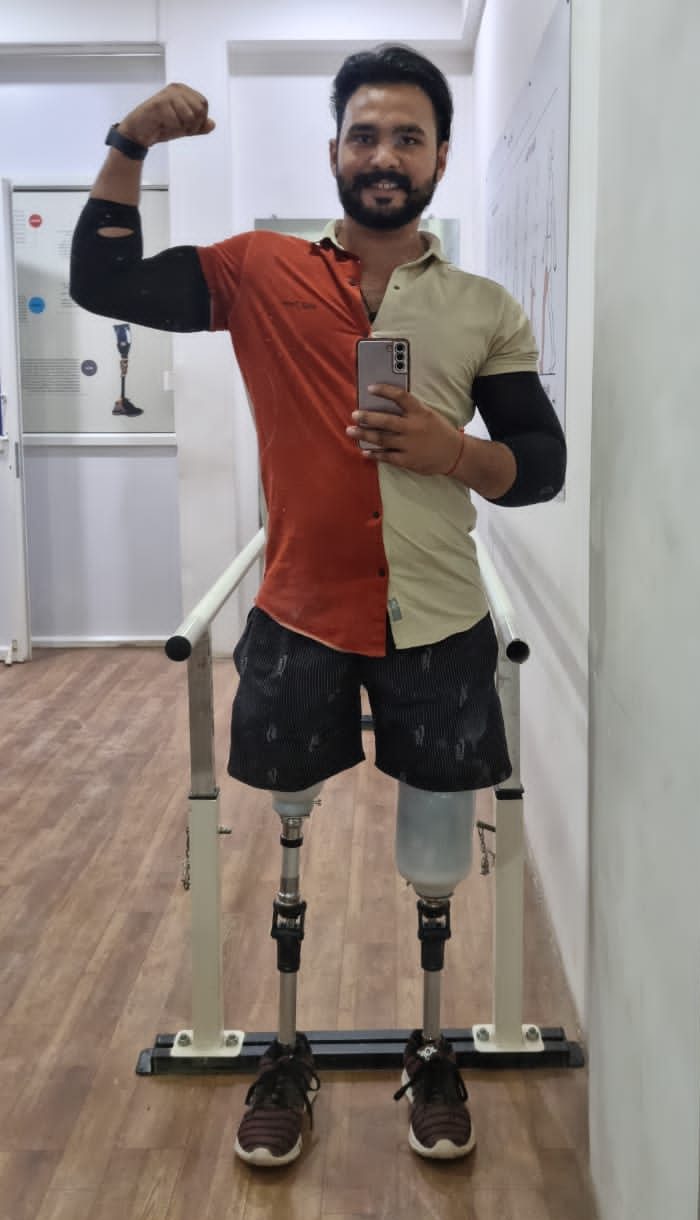
 Madhuram Charitable Trust was launched in 2019. It works on the cross-cutting theme of disability, children with physical, intellectual and congenital disabilities, and adolescents and adults with lower limb amputation. CSR Mandate spoke with Shraddha Soparkar, Founder and Trustee, Madhuram Charitable Trust, to know more about its mission to offer life-changing transformations to a section of society that needs as much help and awareness from the general public regarding the challenges they go through.
Madhuram Charitable Trust was launched in 2019. It works on the cross-cutting theme of disability, children with physical, intellectual and congenital disabilities, and adolescents and adults with lower limb amputation. CSR Mandate spoke with Shraddha Soparkar, Founder and Trustee, Madhuram Charitable Trust, to know more about its mission to offer life-changing transformations to a section of society that needs as much help and awareness from the general public regarding the challenges they go through.
Disability in all forms is often ignored. There is a lack of sensitivity and awareness about it. We disregard and are not mindful of the challenges faced by persons with disabilities and their family members/caregivers. Acceptance of the disabled is still a huge hurdle. The Government can play a crucial role in including the disabled and special kids by coming up with legislation for their admission to regular schools. This will help the specially-abled become independent and sensitise other students in dealing with them. Parents of special kids often feel the pain of not seeing their child have an upbringing like other children.
Do share with us the goal and vision of the NGO.
We aim to create an impact in the lives of those who have not been fortunate when it comes to living a healthy and comfortable life due to their special ability. In three years, we have provided various therapies, hearing aids, crutches, speech therapies and botox surgeries to one hundred individuals with disabilities and prosthetic leg/artificial limb to ninety-six amputees. Our vision is to reduce disparities between the privileged and the underprivileged regarding access to health services and medical care. To foster an environment that is both conducive and beneficial to the growth, nurturing, and acceptance of the specially-abled. Our mission is to work towards creating a culture that is inclusive of special needs and empathetic towards the specially-abled and to empower them through medical assistance, career opportunities and psychological counselling.
What are the most common attitudes you encounter regarding disabilities?
Disability in all forms is often ignored. There is a lack of sensitivity and awareness about it. We disregard and are not mindful of the challenges faced by persons with disabilities and their family members/caregivers. Acceptance of the disabled is still a huge hurdle. The Government can play a crucial role in including the disabled and special kids by coming up with legislation for their admission to regular schools. This will help the specially-abled become independent and sensitise other students in dealing with them. Parents of special kids often feel the pain of not seeing their child have an upbringing like other children.



How do you counsel parents/guardians regarding this? Do you counsel the parents first and then the children? How do you go about breaking through, especially challenging cases?
Being a mother of a special child myself, I understand the emotional need and support required as a parent. Being patient and calm is the only way to support children with special needs. Counselling to parents of children with special needs is crucial. It is a big part of what we do because parents ultimately shape the child’s future. Many times, parents suffer from depression. At Madhuram, we work closely with such parents and counsel them to deal with the situation. We also form support groups that allow parents to support one another.
What are the different kinds of projects you are working on to improve the quality of life of these children/young people/grown-ups?
We provide financial and emotional support to children with special needs and their parents. We also offer all kinds of therapies like physiotherapy, occupational therapy, financial assistance for corrective surgeries, botox surgeries, and other surgeries required for children with special needs, assistive aids for mobility, speech and vision, and all kinds of therapies for autistic kids, down syndrome, etc.



We provide adolescents and adults with high quality, German-imported prosthetic legs for lower limb amputation at zero cost under the Stepathon project.
|
We have an Aqua Therapy Centre, the first of its kind in Ahmedabad, Gujarat. According to research, water is the ideal medium for body rehabilitation or exercise. It helps reduce body weight by up to 90 per cent. By engaging in specific well-directed water activities, the child can gauge his/her body boundaries much better and regulate the force that the body exerts when performing tasks or playing. Aqua therapy improves posture, balance, and coordination. Private pools are very costly and cost between Rs 1000 to Rs 1500 per hour. Our target is to accommodate one hundred children per day by hiring the best coaches. All the therapies are free of cost to the financially marginalised.

Tell us more about the Stepathon project?
Stepathon was conceptualised and made operational in 2021. We provide adolescents and adults with lower limb amputation high quality German-imported prosthetic legs at zero cost under this project. These legs vary from Rs 1 Lakh to Rs 2.5 Lakhs based on the amputation (transfemoral, transtibial and Syme amputation). So far, we have provided 96 amputees with high-tech prosthetic legs. The beneficiaries are also rehabilitated for 30 days, free of cost, to get accustomed to the new leg.



|
|
Is it a day-only therapy facility, or do you lodge them at the Centre?
We extend support to underprivileged children during therapy hours at associated therapy clinics/institutes. We provide therapies to children at the best institutions that would otherwise not be affordable or accessible to them.
People with disabilities or special needs need to be looked upon and treated normally. Discrimination towards them has created a stigma of sorts. We must realise that people with disabilities or special needs are not responsible for their physical condition. They were born with disabilities or special needs. The key is to sensitise people and society toward this section of people.
How can we be made more aware of disabilities and the various impairments?
We could do this by including special kids in regular schools. Not every child suffering from a physical or mental disorder is incapable of studying. We need to provide them with a safe environment and make them feel included. Being in close touch with special kids can also make other children kind-hearted and help establish a society where acceptance is a must for special kids. Education will make them contributors to society instead of being looked upon as a burden to society.
|
 There is a lot of ignorance, discrimination, and apathy toward people with special needs. How can we promote an attitudinal change?
There is a lot of ignorance, discrimination, and apathy toward people with special needs. How can we promote an attitudinal change?
People with disabilities or special needs need to be looked upon and treated normally. Discrimination towards them has created a stigma of sorts. We must realise that people with disabilities  or special needs are not responsible for their physical condition. They were born with disabilities or special needs. The key is to sensitise people and society toward this section of people. There is a need to run campaigns to make people aware of the problems they face and how we, as a society, are only making it worse for them by shunning them and not accepting them.
or special needs are not responsible for their physical condition. They were born with disabilities or special needs. The key is to sensitise people and society toward this section of people. There is a need to run campaigns to make people aware of the problems they face and how we, as a society, are only making it worse for them by shunning them and not accepting them.
 Are you planning to expand to other States/Regions?
Are you planning to expand to other States/Regions?
Our headquarter is in Gujarat. We are not planning to expand this year since such moves need proper thought and meticulous planning. Our focus at the moment is the rural and urban areas of Gujarat. We plan to expand by next year, with plans to start work in Delhi-NCR. However, we are already supporting some beneficiaries in the neighbouring States. We do look forward to that time when we can expand our base by reaching out to a large group of beneficiaries.
What has the Government done to help this section of society?
 The Government does equip healthcare services through secondary and tertiary healthcare facilities. It provides a Disability Identity Card/Unique Disability ID so the specially-abled can avail of various benefits. Additionally, it conducts disability camps and contributes low-cost/affordable prosthetic/orthotic aids/devices to the needy. It provides cochlear implants for the
The Government does equip healthcare services through secondary and tertiary healthcare facilities. It provides a Disability Identity Card/Unique Disability ID so the specially-abled can avail of various benefits. Additionally, it conducts disability camps and contributes low-cost/affordable prosthetic/orthotic aids/devices to the needy. It provides cochlear implants for the  hearing disabled with aids like a wheelchair, crutches, free surgeries, and the Ayushman Card. However, the equipment provided is not of the best quality. The best quality is generally very costly. We are trying to bridge this gap and give the most expensive and best quality equipment to the marginalised section of society, free of cost.
hearing disabled with aids like a wheelchair, crutches, free surgeries, and the Ayushman Card. However, the equipment provided is not of the best quality. The best quality is generally very costly. We are trying to bridge this gap and give the most expensive and best quality equipment to the marginalised section of society, free of cost.
|
Much has been accomplished, but there is more to be done. Many people in this particular section of society are still unable to avail the various benefits they desperately need. This is especially true in rural and remote areas. The Government needs to be more proactive in reaching out to the specially-abled and ensure they have access to the benefits.





